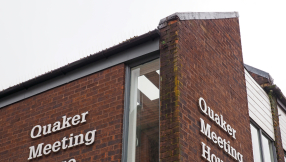
Countries that legalise euthanasia or assisted suicide can expect to see an increase in overall suicide rates, according to new research.
A peer-reviewed study by the Anscombe Bioethics Centre examined data on suicides, euthanasia and assisted suicide from the Netherlands, Belgium, Luxembourg and Switzerland spanning 1990 to 2016.
This was compared with non-assisted suicide trends in neighbouring countries where euthanasia and assisted suicide are not legal.
The study found a "consistent association" between increased suicide rates and the legalisation of euthanasia or assisted suicide.
Instead of a reduction in suicides, the study found that relaxing the law was followed by "considerable" increases in overall suicides, inclusive of assisted suicide and euthanasia.
The study also found that women were "placed most at risk of avoidable premature death" by euthanasia or assisted suicide.
The findings have been published in the Journal of Ethics in Mental Health amid fresh moves in England, Scotland, Jersey and Ireland to legalise assisted suicide.
Lead author of the study, Professor David Albert Jones, said that the current data debunks claims that legalising euthanasia or assisted suicide will lead to fewer non-assisted suicides.
He said the findings raise serious questions about the effect of changing the law on society's commitment to suicide prevention.
"This is further evidence that legalising assisted suicide or euthanasia will result in more people ending their lives prematurely," he said.
"It will not save lives. It will not help prevent suicide. Legalising what is euphemistically called 'assisted dying' will endanger the lives of older people living with serious illness.
"We must say very clearly to all people irrespective of age, disability or illness, that they should not be made to feel that they are a burden to the community.
"They are full members of our society and the human family. We are all enriched by their presence."









